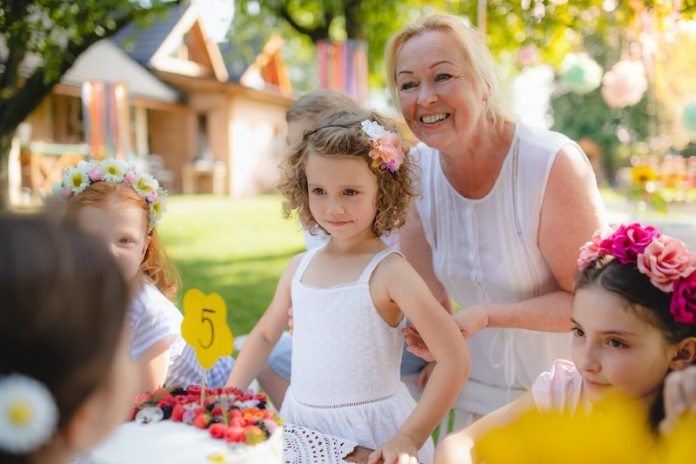
Have you ever noticed the happiness that fills a room when a child enters? Their laughter and curiosity can light up even the dullest of spaces.
A recent study has shown that this joy can bring real benefits to older folks living in retirement homes.
The study was led by Elizabeth Jane Earl and Debbie Marais from Stellenbosch University in South Africa, and their findings were published in an open-access journal called PLOS ONE.
The sad truth is that many older adults living in retirement homes suffer from mental health issues like anxiety and depression. Often, these conditions are overlooked and left untreated.
Usually, the recommended treatment for these mental health problems includes medications and different non-drug-related interventions.
Some people have suggested that letting older adults spend regular time with children could help boost their mental health.
However, until now, most of these ideas haven’t been thoroughly tested inside retirement homes, especially not in South Africa.
To see if children really could help seniors feel better, Earl and Marais decided to conduct a study in a South African retirement home.
What’s special about this place is that it has a preschool on-site, giving the residents a chance to interact with the children regularly. They can play games, read stories, or sing songs together.
The retirement home follows a philosophy of elder care called the ‘Eden Alternative’. This approach focuses on reducing factors that contribute to anxiety and depression among the elderly.
The researchers gave the residents a questionnaire. This helped them understand the levels of anxiety and depression the residents were feeling.
The questionnaire also asked them to talk about their experiences with the children. Ten women took part in the survey.
Four of them seemed to be suffering from anxiety, depression, or both. Each woman had interacted with the children, although some had done so more than others.
The Findings
What did they find? Well, it turns out the women enjoyed their time with the children! Looking at their answers, it seems that spending time with the little ones made the residents feel like they belonged and gave them a sense of purpose.
They fondly remembered their own childhoods and generally felt happier and more cheerful.
The researchers did note that the residents had different opinions about children before the study started. These attitudes may have influenced their personal experiences with the program.
So, what does all this mean? Earl and Marais believe that these programs, which allow intergenerational interactions, could help manage common mental health problems in retirement homes.
They suggest more retirement homes should consider implementing such programs. However, they also say we need more research and larger studies to confirm these benefits.
The authors of the study concluded, “Interactions with children promote a sense of belonging and purpose, evoke reminiscence, and positively influence the mental well-being of older persons.”
In simple words, letting the elderly play and interact with children can make them feel happier, more content, and less anxious or depressed. Surely that’s something worth considering!
In the end, it seems the joy that children bring isn’t just an illusion. It has real benefits, especially for our seniors living in retirement homes.
This important research has opened up an exciting pathway for future studies and programs aimed at improving the lives of the elderly.
If you care about mental health, please read studies about 6 foods you can eat to improve mental health, and B vitamins could help prevent depression and anxiety.
For more information about mental health, please see recent studies about how dairy foods may influence depression risk, and results showing Omega-3 fats may help reduce depression.
The study was published in PLOS ONE. Follow us on Twitter for more articles about this topic.
Copyright © 2023 Knowridge Science Report. All rights reserved.



